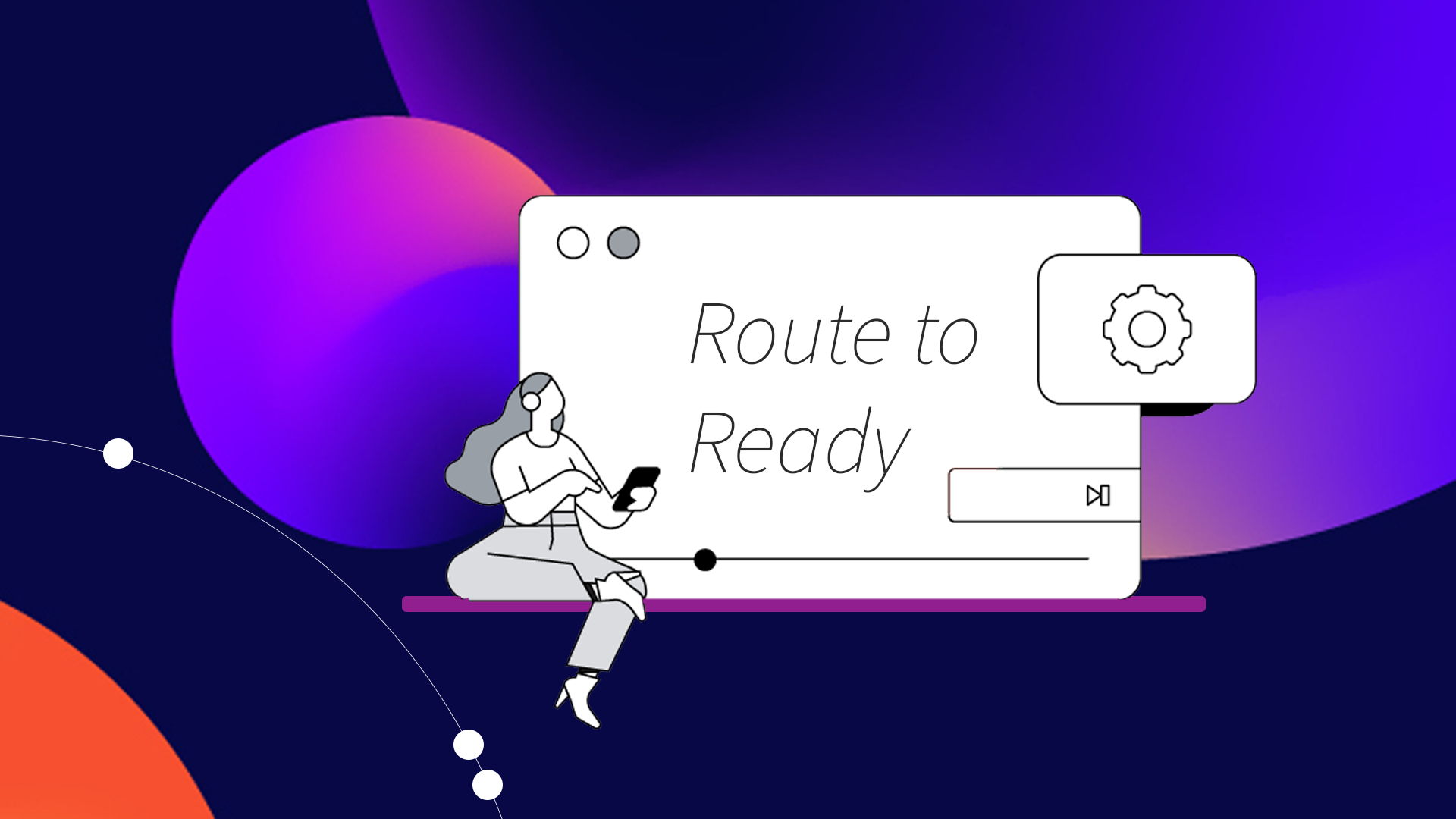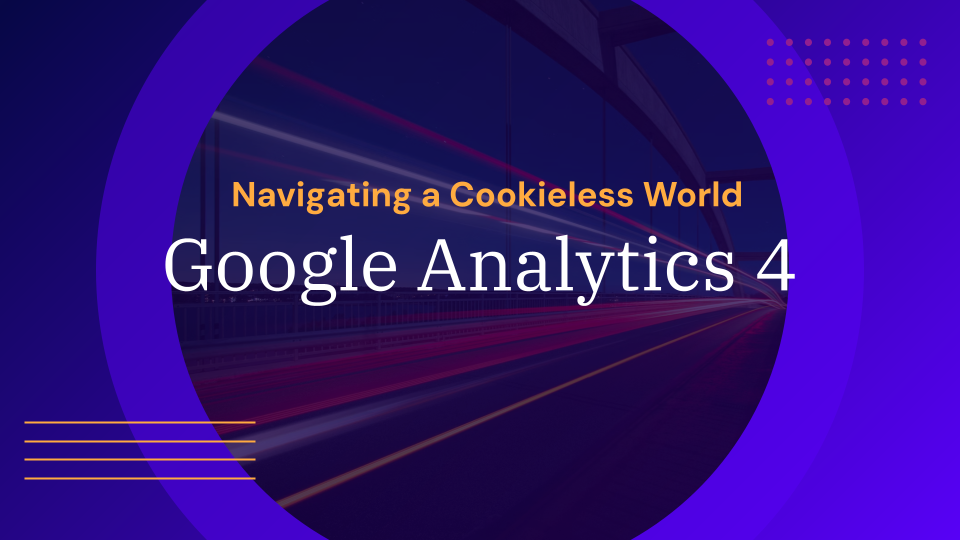
Route to Ready: How to Get Started on Your Digital Transformation Journey
The digital marketing and advertising landscape of 2022 is vastly different than it was just three years ago. Greater digital adoption, accelerated by the pandemic has created the conditions for online sales to have its first $1 trillion year this year.
But this expanding digital marketplace is coinciding with conflicting demands and expectations from both consumers and regulators. While consumers expect a high degree of personalization in the advertising they interact with, they’re increasingly more guarded with the personal data they’re willing to share. This focus on consumer data protection is further reinforced by governmental regulation and major tech companies changing their data gathering and targeting frameworks.
So what are marketers to do in such a complicated digital environment? To answer this question (and many more), Google’s Head of Digital Marketing for the Americas Matthew Kelleher, American Public Education’s VP of Marketing & Online Experience Haleigh Forbes, and Incubeta’s Chief Client Officer Jessica Jacobs joined Incubeta USA’s CEO Kevin Buerger for an event titled “Route to Ready: Unlock Your Digital Transformation Journey”.
Meeting the Modern-Day Consumer
There are multiple drivers of change that marketers need to address, and address quickly. With the planned deprecation of third-party cookies on the horizon, limitations in cross-site tracking, and an ever-evolving slate of regulatory changes, the need to transform operations to meet the needs of the industry have never been higher.
As Kelleher asks, however, “Are these changes happening to us, or for us?” Because in this state of transformation there is also opportunity for marketers to set new standards for the industry. Or, as Entrepreneur Seth Godin says, “The job isn’t to catch up to the status quo; the job is to invent the status quo.”
In order to meet the modern consumer, marketers need to embrace data and technology with the ultimate goal of becoming a “modern marketer,” building dynamic, multi-moment customer journeys towards business outcomes.
This digital transformation into modern marketing is the “route to ready.” And while there is no clear-cut path to get there, there are best practices and phases within that journey—all working in concert with Google’s robust suite of tools—that can help shepherd the process.
Building Better Connections
As all three presenters mentioned, one of the main directives in the route to ready is shifting focus away from third-party cookies towards first-party data sources. By recognizing this imperative, brands are able to build a consent-driven data framework within their organization, which enables personalization without sacrificing privacy.
The best part is, as Kelleher notes, many brands already have access to robust consumer data, it’s just siloed across multiple data sources. By breaking down these silos, and encouraging better communication among disparate teams, brands are able to work towards a unified goal of unlocking incremental value from consumers.
When the data is made actionable, brands are in a position to digitally transform their operations. As Jessica Jacobs shows, the effects can be dramatic in the following ways towards audiences:
- Acquire: Marketers can work to acquire new customers by understanding the characteristics of existing consumers and using these to inform marketing strategies and budget allocations in a first-party data dominated ecosystem.
- Reach: Reach existing consumers at opportune times to increase brand loyalty and push services that will matter at the right place and at the right time.
- Tailor: Tailor experiences to different customer groups by increasing the likelihood of conversion.
- Understand: Understand historic performance drivers and use this to inform your strategy, influence opportune planning and align with informative budget allocations.
Driving Change Across Digital Maturity
Change is always difficult for an organization. As Jacobs says, however, “Change is painful, but nothing is as painful as being stuck in the past.”
In order to take on these major digital initiatives across an organization, it’s best to take a phased approach by breaking the transition down into manageable moments for success. By leveraging and upskilling teams, building familiarity with Google’s suite of tools, and gradually integrating new technologies such as AI and machine learning, the shift to a modern marketing framework becomes far less daunting.
As the process itself becomes better integrated, and campaigns and initiatives become more successful, it becomes easier to make a case for more resources to expand these initiatives.
“Marketing has a really hard job,” Forbes says. “You’re spending lots of money and people are going to constantly be questioning the efficiency of those dollars. We need the data that’s going to help you justify that, the measurement protocol that’s going to help you pinpoint those successes, and the technology that will help you enable your use of that data and the use of those measurement tools.”
The Importance of Getting on the Route Now
While changes like increased digital regulation in the US, and the deprecation of third-party cookies may seem like distant concerns, it’s essential to begin the process of digital transformation right away for one simple reason: testing.
The transition to emerging tools in audience building and cross-platform targeting isn’t a switch that can simply be flipped. By beginning the process now, marketers are able to gradually incorporate these digital tools, get comfortable and build familiarity with the technology, and test results. The earlier a team is able to make the switch, the more time they’ll have to build a baseline to show success.
What else was discussed at the event?
- The increased value consumers are placing on data permissions
- Different routes of innovation—including value based bidding, conversion modeling, and optimized targeting—within the Google platform
- Planning a digital transformation framework with clarity
- The importance of creative within the digital marketing ecosystem
- Success stories and practical examples of digital transformation
Check out the full webinar here: Route To Ready | Incubeta X Google: Digital Transformation Webinar. The Incubeta team is here to answer your questions. Reach out today to begin your route to digital transformation.
Browse: Industry Insight / Work & Awards
Read Next
Find out how we can help you
With offices around the world, we can build a team perfect for your needs.

